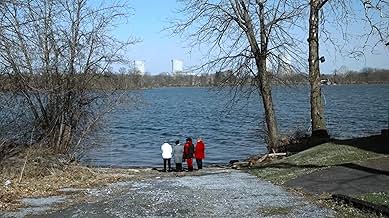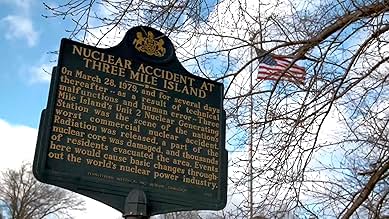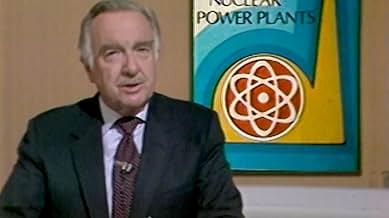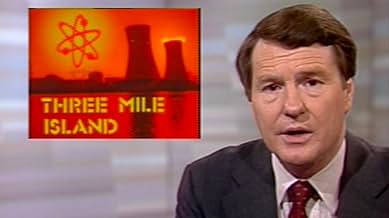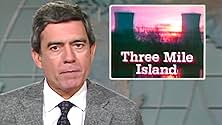Adicionar um enredo no seu idiomaA feminist feature documentary about the 1979 Three Mile Island meltdown with never-before-told stories.A feminist feature documentary about the 1979 Three Mile Island meltdown with never-before-told stories.A feminist feature documentary about the 1979 Three Mile Island meltdown with never-before-told stories.
- Direção
- Roteirista
- Artistas
Joanne Doroshow
- Self - Represented Three Mile Island Alert Community Group
- (as Joanne Doroshow - Attorney)
Lynne Bernabei
- Self - Represented Three Mile Island Alert Community Group
- (as Lynne Bernabei - Attorney)
Jack Herbein
- Self - Vice President, Metropolitan Edison
- (cenas de arquivo)
- (as John Herbein)
Avaliações em destaque
This film has been shown at two festivals so far, one in NYC, one in DC. I attended both, and in both it received standing ovations from the audience. Meticulous in reporting the science and the facts, it does an even better job capturing the emotional tension of four mothers taking on the federal government and corrupt corporations that were pushing the fake narrative that there was "nothing to see here" at Three Mile Island.
Calling the corporation "corrupt" is no exagerration, since court cases the women brought proved a pattern of falsifying documents, cheating on licensing exams, and lying to regulators.
Those government regulators also continue to lie to the public about the radiation released at TMI and the health effects on the downwinders, again as documented in the movie.
Anyone who is thinking about drinking the radioactive kool-aid the Biden administration is offering in the form of tax payer support for the nuclear industry needs to watch this movie and learn about its decades of lying and cover ups and cheer at the bravery of the women who exposed it.
Calling the corporation "corrupt" is no exagerration, since court cases the women brought proved a pattern of falsifying documents, cheating on licensing exams, and lying to regulators.
Those government regulators also continue to lie to the public about the radiation released at TMI and the health effects on the downwinders, again as documented in the movie.
Anyone who is thinking about drinking the radioactive kool-aid the Biden administration is offering in the form of tax payer support for the nuclear industry needs to watch this movie and learn about its decades of lying and cover ups and cheer at the bravery of the women who exposed it.
10jessi9
I learned so much from "Radioactive" about the Three Mile Island disaster. I left the movie with a new perspective on the disaster itself. The film presents information I'd never heard before about the radiation exposure that people experienced. It also sheds light on the government and industry response to the disaster. The film mentions ongoing scientific research into the lasting effects of the exposures, and I am curious to learn more as that research develops. It's a must-see for anyone who remembers Three Mile Island, who lives near a nuclear power plant, or who is interested in nuclear policy.
Fascinating documentary on the women--local mothers, a waitress, a young lawyer--who fought efforts to downplay the accident by the nuclear industry and the federal Nuclear Regulatory Commission.
Their efforts led to hearings that cast doubt on officials' statements--for example, it turns out no one knows how much radiation was released because the sensors atop the towers were pushed past their maximum limits--and led to the federal prosecution and conviction of the utility company for falsifying records.
The film notes that more such doubt is cast by recent peer-reviewed, journal-published research. One paper shows that cancer rates are higher where the radioactive plume fell. Another paper explains the disparity between official expectations of illness and the observed higher rate--in part because the expectations accounted for short-lasting gamma radiation and not fat-soluble beta radiation.
The film notes that the efforts of these women did not stop the reopening of TMI after six years--but did help scuttle more than 100 planned nuclear plants.
Well worth seeing.
Their efforts led to hearings that cast doubt on officials' statements--for example, it turns out no one knows how much radiation was released because the sensors atop the towers were pushed past their maximum limits--and led to the federal prosecution and conviction of the utility company for falsifying records.
The film notes that more such doubt is cast by recent peer-reviewed, journal-published research. One paper shows that cancer rates are higher where the radioactive plume fell. Another paper explains the disparity between official expectations of illness and the observed higher rate--in part because the expectations accounted for short-lasting gamma radiation and not fat-soluble beta radiation.
The film notes that the efforts of these women did not stop the reopening of TMI after six years--but did help scuttle more than 100 planned nuclear plants.
Well worth seeing.
I watched this at an environmental film fest. Knowing very little about Three Mile Island, I was disturbed to learn the extent of the failings of the local and federal government and big business. The residents of the community and our entire nation were misled. Telling this story through the eyes and of mothers in the community was effective and sincere. The women brought tears to my eyes but also laughs. You see their stories play out over decades and they are truly heroes and dedicated advocates. There are fascinating science and health concerns raised (I won't spoil them here), but you will walk away from the film with a healthy skepticism of nuclear energy and the protections in place in the United States of America.
A never-before-told story about the women who fought the Nuclear Industry and their BIG LIE. They could have been warned but instead were kept in the dark, even after the Three Mile Island disaster occurred - putting their lives and their children's lives at risk. But they didn't slink away into darkness. They took on Goliath.
The film's director clearly built close relationship with the women who opened their homes to her, and she then interviews experts in the field to fill out the story. Cancer rates in that area are through the roof, and the suffering is horrific. And all of that could have been avoided if our government and big business believed in transparency.
The film's director clearly built close relationship with the women who opened their homes to her, and she then interviews experts in the field to fill out the story. Cancer rates in that area are through the roof, and the suffering is horrific. And all of that could have been avoided if our government and big business believed in transparency.
Principais escolhas
Faça login para avaliar e ver a lista de recomendações personalizadas
Detalhes
- Tempo de duração
- 1 h 16 min(76 min)
- Cor
Contribua para esta página
Sugerir uma alteração ou adicionar conteúdo ausente

